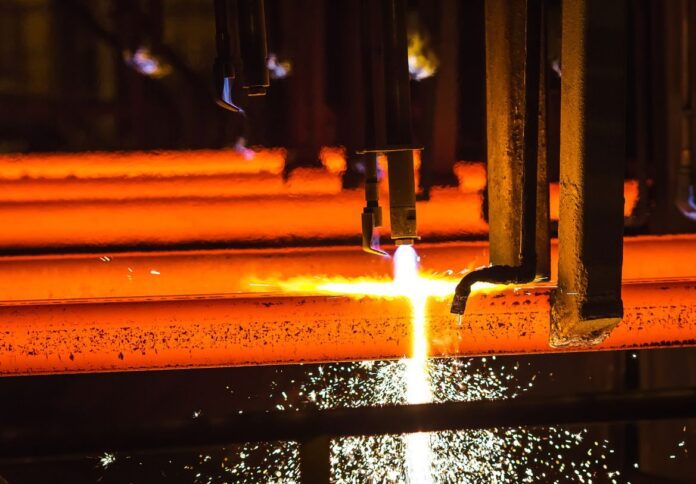
Article by Roger Franklin, Senior Solutions Consultant, SYSPRO Australasia
With the global Metal Fabrication sector expected to grow globally at seven to ten per cent annually until at least 2032, many manufacturers are beginning to address what some are calling “The elephant in the room – Planning!
The metal fabrication sector faces a number of unique challenges due to the complexity of production processes, diverse material requirements and growing customer demands. However, manufacturers can achieve significant improvements by proactively addressing “Planning”, or what is often referred to as Manufacturing Scheduling and shop floor control. Optimising production, minimising bottlenecks, improving efficiency to meet increasing customer demands are all regular board discussions.
To Tackle these challenges head-on, fabricated metal manufacturers are building and growing their “Manufacturing Agility” in the following five areas;
- Advanced scheduling tools
Implementing advanced scheduling software and tools can significantly improve scheduling accuracy and efficiency. These tools leverage algorithms and optimisation techniques to create optimal schedules, considering machine capabilities, material availability, labour capacity and delivery deadlines. They can help balance workloads, minimise idle time and enhance shop floor productivity.
- Capacity planning and flexibility
Accurate capacity planning is crucial for effective scheduling and shop floor control. Organisations that know their current and future capacity capabilities understand their constraints, allowing them to build flexibility and agility into their operations to handle fluctuations in demand better.
- Real-time monitoring and data analysis
Adopting real-time monitoring systems and data analytics can provide valuable insights into shop floor operations. Organisations can identify production bottlenecks, monitor key performance indicators (KPIs), and make informed decisions to optimise scheduling and shop floor control by collecting and analysing data from machines, sensors, and workers.
- Lean manufacturing principles
Lean manufacturing principles, such as value stream mapping, Kanban systems, and continuous improvement, can streamline production processes and enhance scheduling and control. Eliminating waste, reducing setup times, and implementing standardised work procedures can improve overall efficiency and enable more effective scheduling.
- Continuous evaluation and improvement
Regularly reviewing and evaluating scheduling and shop floor control processes is essential for ongoing improvement. Organisations that gather feedback, monitor performance metrics, and identify areas for enhancement will likely develop a strategic advantage over those that don’t. This iterative improvement approach allows adjustments and refinements that improve product design, optimise scheduling and improve productivity.
Putting the P in ERP
Implementing a modern Enterprise Resource Planning (ERP) system tailored to the specific needs of manufacturers can provide the metal fabrication industry with the foundation for efficient planning and business success. Most ERP solutions are generic and do not provide the specific features and functions needed to support this industry. ERP systems engineered for manufacturers wield the power to provide real-time visibility and seamlessly manage operations to enhance scheduling and shop floor control.
With the increasing automation of routine tasks, factories still place substantial demands on their people to oversee production. But with a Manufacturing Operations Management (MOM) system in place, integrated with their ERP, they will be able to identify and mitigate all of the common shop floor challenges.
Manufacturers that can facilitate the level of data-driven decision-making that MOM provides will be able to achieve efficient scheduling and shop floor control. Getting absolute clarity of the shop floor dynamics is essential to pre-empt issues like overruns, bottlenecks, downtimes, poor machine performance and excessive material wastage.
Achieving optimal scheduling and enhancing shop floor efficiencies are the keys to manufacturing success. The convergence of modern ERP platforms with MOM systems is instrumental for organisations aiming to achieve manufacturing excellence, effectively putting the “P” in ERP.
The takeaway
While market forces can’t be controlled, technology is enabling new doors to be opened that help manufacturers run smoother, more efficient, profitable operations. ERP solutions designed specifically for manufacturers empower metal fabricators to streamline processes, plan better and execute more efficiently, increasing speed to market, reducing waste and lowering costs.
Addressing these challenges is vital for fabricated metals manufacturers to thrive in a growing industry with abundant opportunities. They can optimise efficiency and productivity by implementing advanced tools, leveraging data-driven insights, fostering collaboration, adopting lean principles and incorporating a specialist ERP system.
By proactively enhancing scheduling and shop floor control capabilities through an ERP system, manufacturers can position themselves for success, capitalise on growth opportunities and meet customer expectations in an increasingly dynamic and competitive market.



















